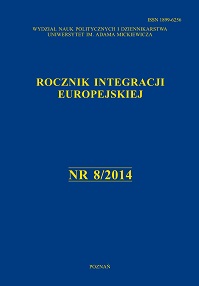Rynki zbrojeniowe państw Unii Europejskiej: przykład Grecji i Polski
EU arms markets in Greece and Poland
Author(s): Paweł TurczyńskiSubject(s): Politics / Political Sciences
Published by: Uniwersytet Adama Mickiewicza
Keywords: European Union; international security; armament; budget
Summary/Abstract: The European Union has been acting to consolidate arms markets for a decade. These endeavours have been seriously impeded by the diverse interests, security strategies and potential of individual member states. Poland and Greece are among the few EU members that have been increasing their defence expenditure in recent years. They are driven by different objectives when making their arms purchases, though. Poland fears a land confrontation with an enemy possessing weapons of mass destruction and demonstrating disregard for the norms of international law. Greece, in turn, sees a potential enemy in a member of the same military alliance, whose behaviour is more predictable, and where the potential confrontation would occur in the air and at sea. Greece is also at a greater risk of terrorist attacks and uncontrolled immigration than Poland. Poland has a considerable arms industry and is able to produce a part of its military supplies on its own. Greece is required to import weapons to a much greater extent. It is therefore difficult to assume the standardisation of weapons in European markets or any considerable convergence of security strategies implemented by different EU members.
Journal: Rocznik Integracji Europejskiej
- Issue Year: 2014
- Issue No: 8
- Page Range: 135-146
- Page Count: 11
- Language: Polish

